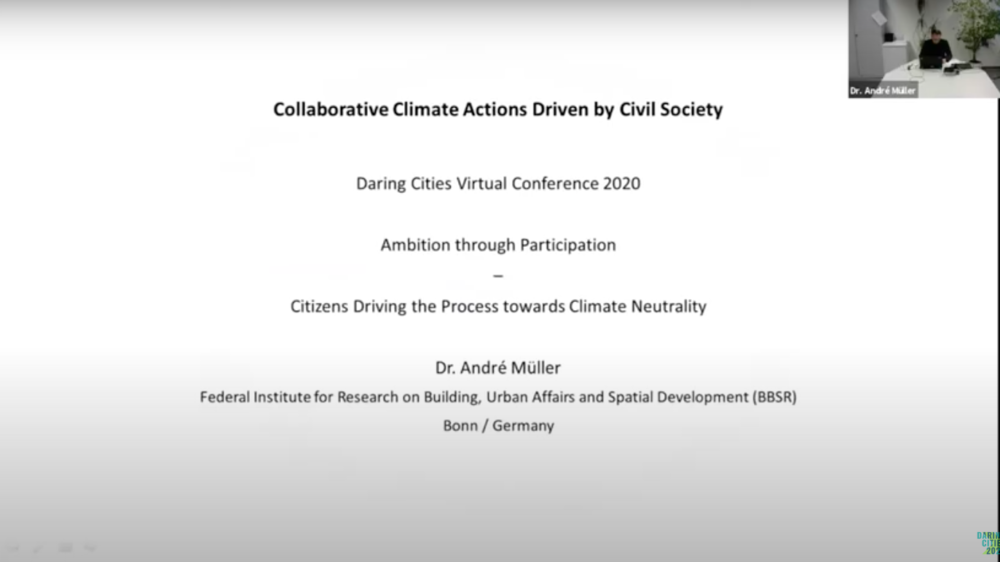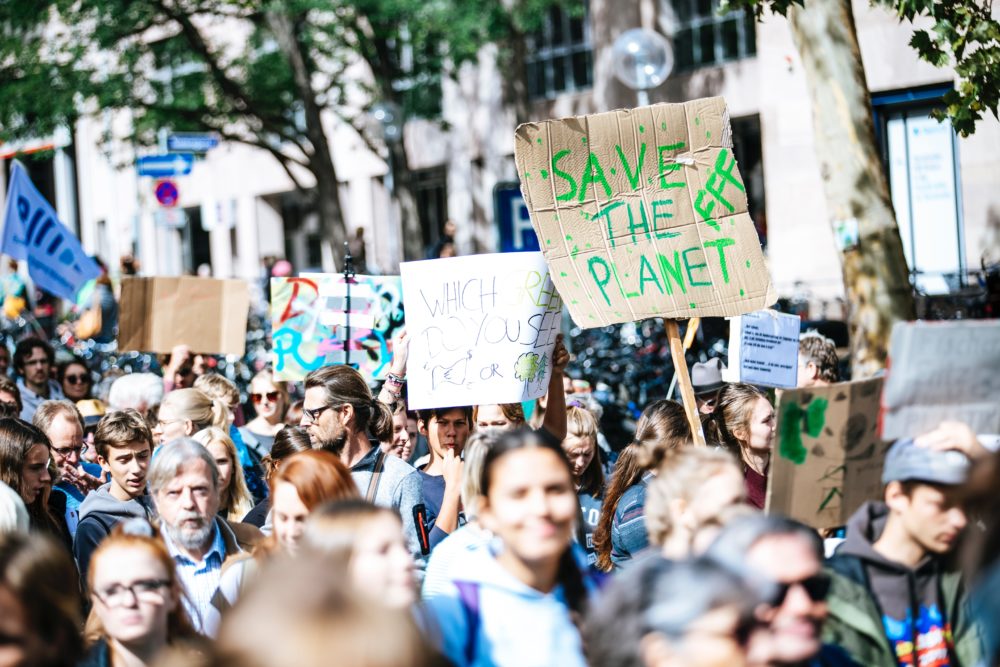
In order to access the video, you must create an account on Daringcities.org or log-in.
Ambitious climate goals cannot be achieved by governments or politics alone. Civil society must be actively involved in the implementation of local climate policy – not simply by demanding action from politicians and policy makers, but rather through coordinated action with the municipality and active uptake of ambitious climate policies.
This session discusses how civil society itself drives the process of local climate policy, and how civil society and local administration co-operate in participation projects to achieve the best result for their city.
Viewers will learn about the experiences being made in Bonn with Bonn 4 Future, a city-wide participation process to help achieve Bonn’s latest goal of becoming climate-neutral by 2035. Initiated by three civil society organizations, the concept was further developed in partnership with the city’s administration, and just adopted by the city council in September 2020.
Examples from the City of Milwaukee, USA conducting effective participatory processes to support climate action with then be showcased, demonstrating different approaches to collaborative climate action and explaining the impact the projects and approaches have had.
Panelists and the audience jointly discuss the various approaches and concepts, sharing ideas for a successful implementation and identifying factors of success that help interested civil society representatives initiate similar processes in their own cities.
Facilitator:
- Adriana Valenzuela (Global Center on Adaptation)
Speakers:
- Dr. André Mueller (Federal Institute for Research on Building, Urban Affairs and Spatial Development (BBSR) within the Federal Office for Building and Regional Planning (BBR))
- Dr. Gesa Maschkowsi (Transition Initiative Bonn im Wandel e.V.)
- Marion Wilde (Climate Coordination Unit, City of Bonn)
- Erick Shambarger (Director of Environmental Sustainability for the City of Milwaukee)
